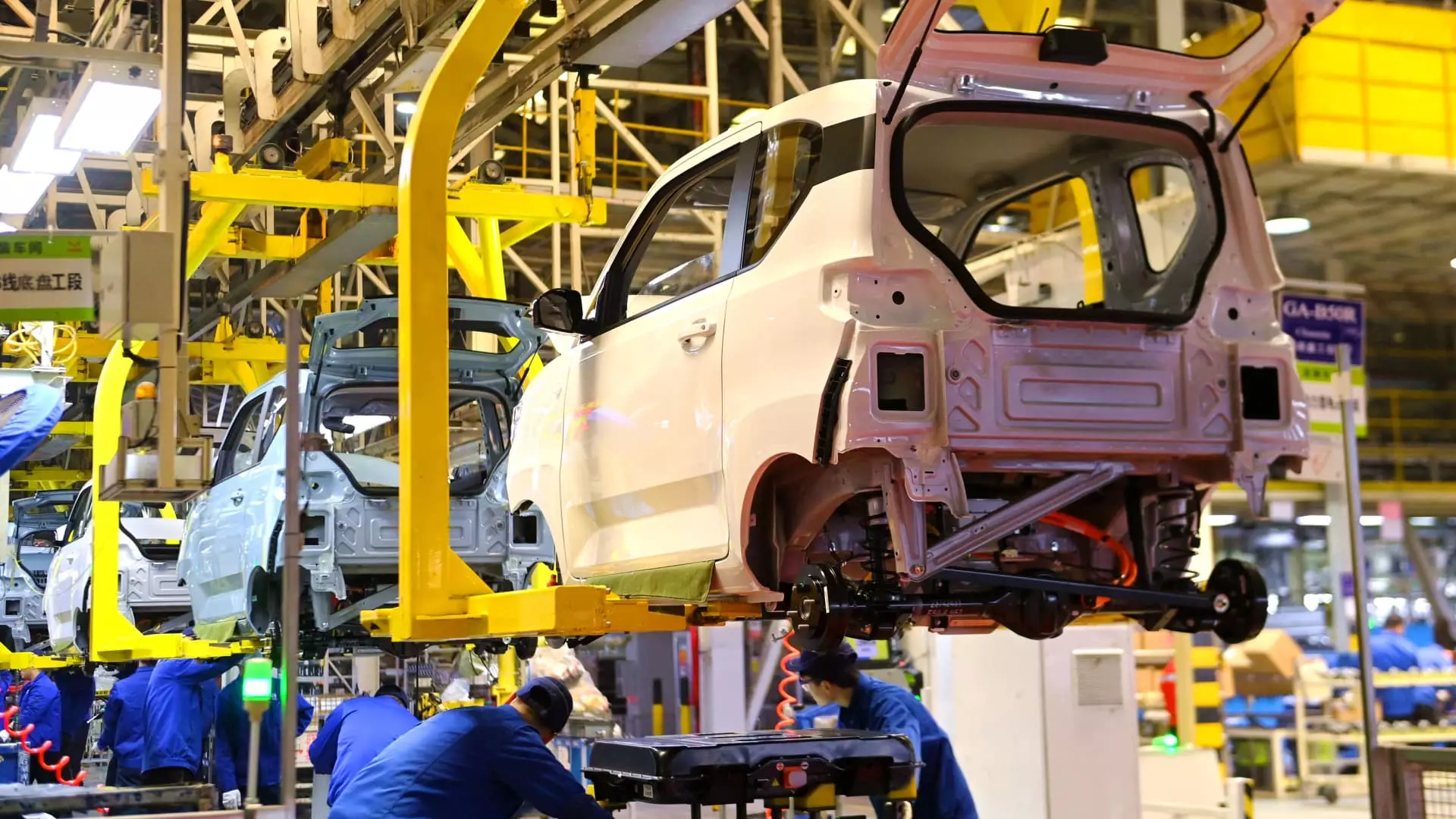China has invested a staggering $230.8 billion over the course of more than a decade to bolster its electric car industry. This substantial financial support has accounted for 18.8% of total electric car sales between 2009 and 2023. However, despite the significant funding, the ratio of government spending to electric vehicle (EV) sales has declined from over 40% in the years leading up to 2017 to just above 11% in 2023. This massive scale of investment emphasizes China’s commitment to becoming a global leader in the electric car sector.
One of the key factors contributing to the growth of China’s electric car industry is its supportive regulatory environment and policies that favor domestic automakers over foreign competitors. These non-monetary initiatives have given local companies a competitive edge in the market. In stark contrast, many Western automakers and governments have been criticized for their lack of aggressiveness in developing their own electric car industries. Scott Kennedy, a trustee chair in Chinese Business and Economics at the Center for Strategic and International Studies, highlighted the disparity in government support between China and the US.
Challenges and Profitability
Despite the significant progress made by Chinese EV makers and battery producers, their profitability remains a concern. While the market for electric cars in China continues to grow rapidly, the profits of companies like BYD and Tesla per car have declined in the past year. The intense price war in the EV industry has forced companies to slash prices or introduce lower-cost models to remain competitive. Chinese electric car startup Nio, for example, is still operating at a loss and expects intense competition in the Chinese market.
In a well-functioning market economy, firms would carefully evaluate their investments in new capacity to prevent a sharp gap between supply and demand. However, the EV industry in China has seen rapid expansion without significant profitability gains. There is a growing concern about the oversupply of electric cars and the need for industry consolidation to ensure long-term sustainability. Analysts have even suggested that major US automakers should consider leaving the Chinese market due to the intense competition and market conditions.
Global Efforts and Policy Implications
The US has also ramped up its efforts to support electric cars, with legislation like the Inflation Reduction Act allocating $370 billion for promoting clean technologies. The implementation of a $7,500 credit for electric car purchases aims to incentivize consumers to adopt eco-friendly vehicles. In comparison, the average Chinese support per electric car purchase in 2023 was $4,600, down from $13,860 in 2018. This disparity underscores the different approaches taken by the US and China in promoting electric vehicles and the impact on market dynamics.
China’s electric car industry has witnessed significant growth and government support over the past decade. However, challenges related to profitability, market saturation, and intense competition remain critical issues that need to be addressed. As the global demand for electric vehicles continues to rise, it is essential for policymakers and industry stakeholders to work together to ensure the long-term sustainability and success of the electric car market.

